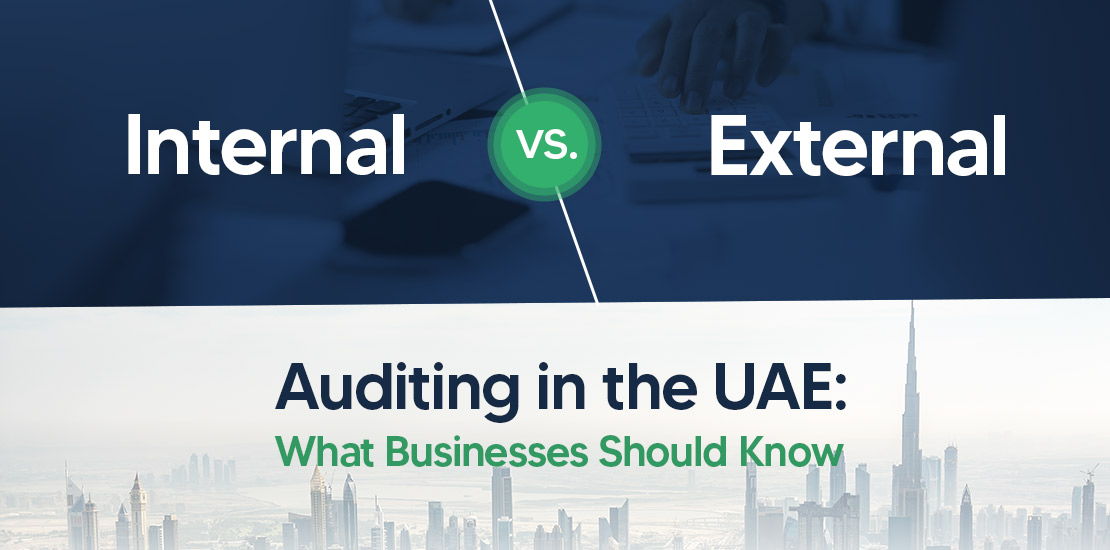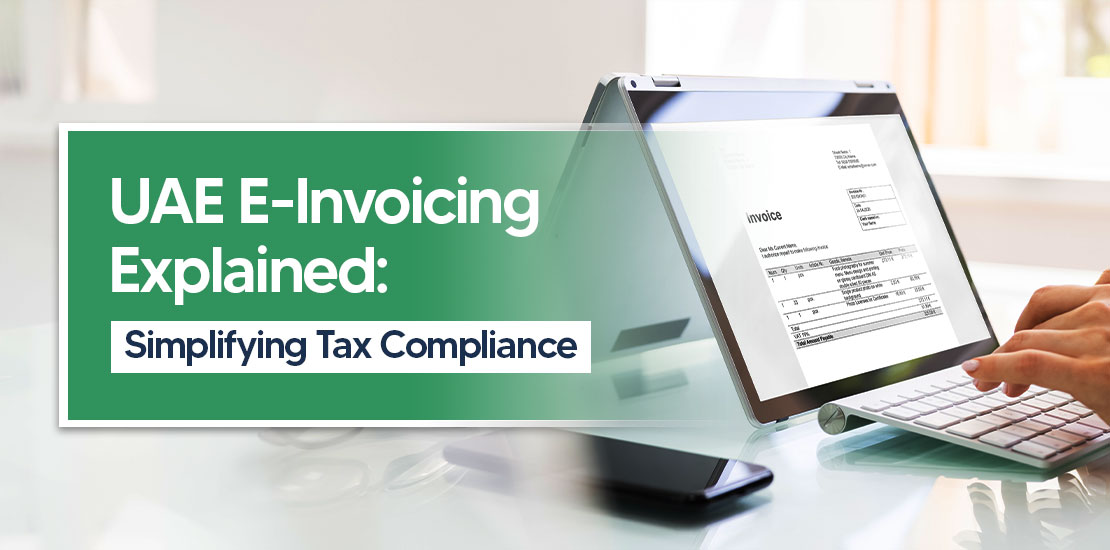For many years, the United Arab Emirates (UAE) has been a hub for businesses drawn to its tax-friendly environment. However, a new chapter began in June 2023 with the introduction of corporate tax. Corporate tax in UAE is a crucial aspect of running a business, as it plays a significant role in the country’s economy.
In simple terms, corporate tax is a tax on the profits earned by businesses. It is essential for businesses in the UAE to understand and comply with corporate tax regulations to ensure smooth operations and avoid any legal issues. The corporate tax rates, taxable profits, exemptions, deductions, credits, filing procedures, and penalties are all critical aspects that businesses must be well-versed in.
Therefore, here we will equip you with everything you need to know about corporate tax in the UAE.
Corporate Tax in the UAE
A corporate tax, also known as a federal tax or company tax, is a direct tax levied on the income or capital of corporations and other similar legal entities. The UAE introduced a federal corporate tax (CT) in 2023 and it applies to the net profits of most businesses operating across all the emirates.
Corporate Tax Rates in UAE:
9%: This is the standard rate that applies to all taxable profits exceeding AED 375,000 (roughly $102,000 USD).
0%: There’s a zero corporate tax rate for taxable income up to AED 375,000. This offers some relief for small businesses.
However, there are some exceptions, like:
Foreign banks: These may be subject to a flat 20% rate under separate emirate-level decrees.
Oil & Gas companies: These have individual tax agreements.
Multinational Enterprises (MNEs): Those under the OECD’s Base Erosion and Profit Sharing (BEPS) 2.0 framework with global revenue exceeding AED 3.15 billion (approx. USD 860 million) may have different rates applied.
Taxable Person
A “taxable person” in the UAE corporate tax system refers to any entity liable to register, file tax returns, and potentially pay corporate tax. These can be:
- Resident Persons: Companies in the UAE, foreign companies managed there, and individual businesses with UAE turnover exceeding AED 1 million annually.
- Non-Resident Persons: Companies with a UAE presence (permanent establishment) or those earning UAE-sourced income.
UAE-Sourced Income: If a non-resident company has a physical PE in the UAE, profits generated through that PE are considered UAE-sourced income. The exact rules for determining taxability depend on the nature of the income and any applicable Double Taxation Agreements (DTAs).
How Corporate Tax Works
Companies must file corporate tax returns with the government regularly, typically annually. The tax return will calculate the company’s taxable income, which is the company’s total income minus certain deductions and allowances. The company’s taxable income is then multiplied by the corporate tax rate to determine the amount of tax owed.
The introduction of corporate tax in the UAE is expected to significantly impact the country’s business environment. It is anticipated to attract foreign investment, enhance the UAE’s competitiveness, and promote economic diversification.
Businesses that adapt to the new corporate tax regime and leverage its potential are well-positioned to thrive in the UAE’s dynamic business environment.
Taxable Income
Taxable income for corporations in the UAE refers to the net profit subject to corporate tax. Here’s what generally included in the taxable income:
- Business Profits: This forms the core of taxable income and includes revenue from the company’s core activities after deducting all related expenses.
- Capital Gains: Profits from the sale of assets like property or investments are generally considered taxable income.
Calculating Taxable Income:
1. Start with Gross Revenue: This is the total income from your business activities, including sales, commissions, and fees.
2. Deduct Allowable Expenses: You can subtract ordinary and necessary expenses incurred while generating that revenue. These can include:
- Cost of goods sold (COGS)
- Salaries and wages
- Rent and utilities
- Marketing and advertising expenses
- Depreciation and amortization
- Interest on business loans (with limitations)
3. What’s left is your Profit or Loss:
If it’s a profit, that’s your taxable income.
If it’s a loss, you may be able to carry it forward to offset future profits and reduce your tax liability in those years (specific rules apply).
Corporate Tax in Free Zones
Companies operating in designated Free Zones in the UAE with a valid Qualifying Free Zone Person (QFZP) license enjoy a 0% corporate tax rate on their Qualifying Income. This applies to income from activities within the Free Zone and transactions with other Free Zone Persons.
However, QFZPs lose the 0% benefit on income generated from Excluded Activities or through a Permanent Establishment (PE) outside the Free Zone (mainland UAE or foreign country). In such cases, the standard 9% corporate tax rate applies.
It’s best to consult the relevant Free Zone authority or corporate tax consultant in the UAE for specifics on Free Zone benefits and qualifying activities.
Who is exempted from UAE corporate tax?
The UAE corporate tax regime, introduced in 2023, provides exemptions for certain types of businesses and income. This includes:
- UAE Government entities (such as local government entities, ministries, departments, and authorities).
- Extractive businesses (such as extraction of natural resources including oil, gas, and minerals).
- Qualifying public benefit entities.
- Qualifying investment funds, as defined in the UAE Corporate Tax Law, are exempt from corporate tax.
- Free zone businesses will be subject to the CT regime. However, there will be consideration for the incentives being offered to free zone businesses if they comply with all the regulatory requirements.
- A business established in free zone jurisdiction will need to register and file corporate tax returns.
Corporate Tax for Small Businesses in the UAE
The UAE offers some welcome relief for small businesses in the form of a tiered tax system and a specific program called SBR – “Small Business Relief.” Zero-rated tax is applied to profits up to AED 375,000. This is a significant benefit for small businesses, as they won’t pay any corporate tax on their profits within this threshold.
Eligibility for Small Business Relief (SBR):
Small business relief programs offer an exemption from corporate tax altogether for eligible businesses. Here’s the eligibility:
- Resident taxable persons (both individuals and companies) can qualify. This includes Free Zone entities meeting the criteria.
- Your business revenue must be AED 3 million or less for the relevant tax period and all previous tax periods ending on or before December 31, 2026. There’s a temporary window here.
- You cannot be a financial institution or a holding company.
To claim SBR, you need to file a notification with the tax authorities within your tax return for the respective tax period.
When do you Need Small Business Relief (SBR)?
If your business consistently makes less than AED 375,000 in profits, the 0% tax rate might be sufficient.
SBR becomes more attractive if your profits fluctuate and might sometimes exceed the AED 375,000 threshold. Opting for SBR eliminates the need to file returns altogether, regardless of your profit level within the eligible range (up to AED 3 million revenue).
Key Features of the UAE Corporate Tax System
- The standard corporate tax in UAE rate is set at 9%, with a zero-rate applicable to taxable profits below AED 375,000.
- Taxable profits are calculated based on accounting principles generally accepted in the UAE (UAE GAAP) and International Financial Reporting Standards (IFRS). Certain income, such as dividends and capital gains, is exempt from corporate tax.
- Various deductions and credits available, such as those for direct and indirect business expenditures, research and development for business.
- Businesses must file corporate tax returns and pay tax annually.
For any business financial year which starts on or after the 1st of June 2023 will be subject to corporate tax the very same year. For example, if a company’s financial year starts on 1st August 2023 and ends on 31st July 2024, it will be subject to corporate tax from August 2023. This is because it would be the first financial year for the company after the CT regime.
On the other hand, if for instance a business’ financial year starts on 1st February 2023, it will only become subject to corporate tax the following year, i.e., 1st Feb 2024 to 31st Jan 2025.
Frequently Asked Questions
1. Who is subject to corporate tax in the UAE?
Resident persons, which include companies formed in the UAE, foreign companies managed in the UAE, and individual businesses with a UAE turnover exceeding AED 1 million per year, are liable for corporate tax. Non-resident companies with a UAE permanent establishment or those earning UAE-sourced income may also be subject to the tax.
2. Are businesses in free zones exempt from corporate tax?
Qualifying Free Zone Persons within designated Free Zones benefit from a 0% tax rate on income derived from qualifying activities and transactions with other Free Zone Persons. However, income from outside the Free Zone (through a permanent establishment) will likely be taxed at the standard 9% rate.
3. What happens if I don’t pay corporate tax in the UAE?
Penalties and fines may be imposed for non-compliance with tax regulations, including late filing or non-payment of taxes.
4. What are some deductions allowed under UAE corporate tax?
The UAE CT follows international accounting standards for determining taxable income. Generally, allowable deductions include ordinary and necessary business expenses incurred for generating taxable income.
5. Do I need to keep specific records for UAE corporate tax purposes?
Yes, maintaining proper accounting records is crucial for determining taxable income accurately. This typically includes financial statements, invoices, and receipts.
6. How much corporate tax is in the UAE?
All annual taxable profits that fall under AED 375,000 shall be subject to zero rate. All annual taxable profits above AED 375,000 shall be subject to a 9% rate.
7. Is it mandatory to register for corporate tax in the UAE?
As per the FTA’s Federal Decree Law 47, The corporate tax regime demands every taxable person, which includes a Free Zone Person, requires to register for Corporate Tax and get a Registration Number.
8. What is qualifying income in UAE corporate tax?
Any income derived by a Qualifying Free Zone Person that is subject to a 0% Corporate Tax Rate is Qualifying Income. The Qualifying Income is derived/determined by qualifying business activity or transaction conducted within the Qualifying Free Zone in UAE.
9. How to save corporate tax in UAE?
Here is how you can minimize the amount of corporate tax your business is liable to.
- Take Advantage of Tax Exemptions and Incentives
- Properly Structure the Business
- Maintaining Financial Records
- Hire a Registered Tax Agent in UAE
- Timely corporate tax return filing and payments
Most importantly, get taxation assistance from experts like Shuraa tax.













